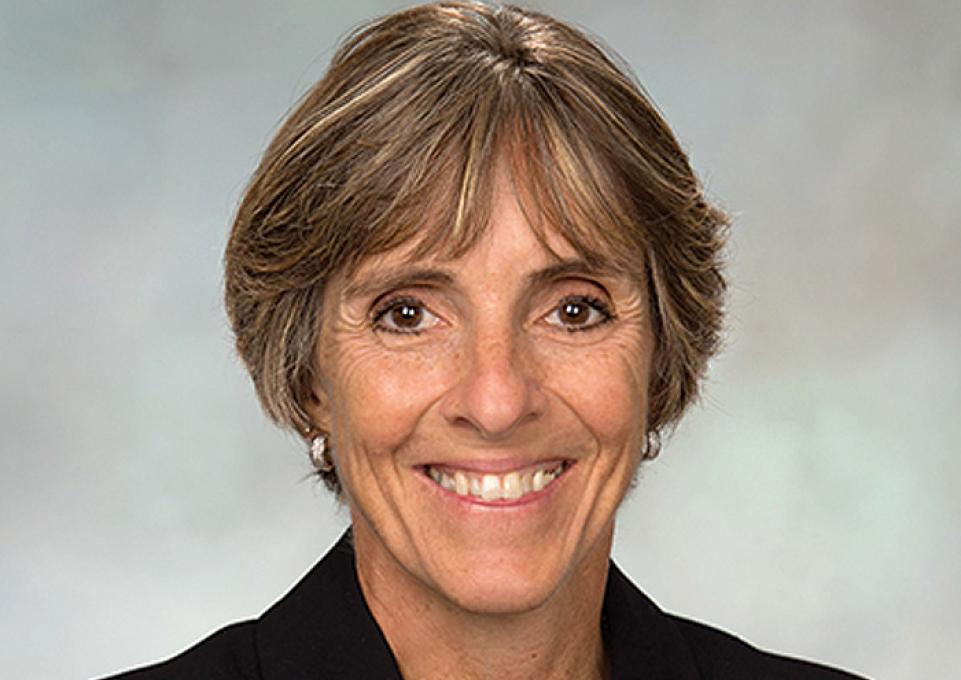
Surviving cancer is the first chapter. The second chapter opens when patients begin their post-cancer lives. Learning how to travel that path was the focus of Roswell Park Cancer Institute’s recent workshop, “Chapter 2: A Cancer Survivor’s Workshop for Living Your Best Life.”
“It was amazing to be part of this,” said Carol DeNysschen, associate professor and chair of the Health, Nutrition, and Dietetics Department. DeNysschen, a registered dietitian, spoke on a panel that advised survivors how to manage short- and long-term challenges.
Her advice for short-term challenges included manageable steps such as switching out rich desserts three times a week and replacing them with fresh fruit that’s nutrient-dense, not calorie-dense. She said, “You don’t have to become a vegetarian or give up foods you like, but be mindful that two-thirds of your meal should be plant-based.” Such foods include vegetables, fruits, whole grains, and beans. Processed meat such as bacon and ham should be rare treats.
One challenge faced by some survivors is altered taste and/or smells of foods. DeNysschen suggested several coping techniques such as using plastic flatware instead of metallic flatware; eating fresh or frozen vegetables instead of canned; and cooling foods to reduce their odors.
Another challenge for some patients is regaining weight. “It’s important to eat nutrient-dense snacks,” she said, “so foods such as full-fat yogurt, peanut butter, and hard cheese are excellent choices.” She also advocates exercise, if the patient’s physician agrees. “To begin, aim for 30 minutes of exercise a day at least four days a week,” she said. “You can’t separate nutrition from exercise—they are both crucial to maintaining your health.
Dietetic students Rael Brown and Charissa Szpaicher also spoke at the cancer survivor’s workshop. Their presentation, “Foods for Health,” focused on such topics as the role of body weight, foods to limit, antioxidants, supplements, and symptom management.
Among cancer survivors, those who are overweight and obese are at greater risk of cancer recurrence. Brown and Szpaicher noted that cancer survivors should avoid the use of dietary supplements during treatment because some studies have shown that supplements may inhibit the anti-tumor effects of radiation and chemotherapy. In any situation, it is much better to meet one’s nutritional needs through healthy eating than through taking supplements, the students told their audience.
Because poor appetite sometimes results from cancer and cancer treatment, it’s important for patients to view eating as a treatment. When survivors feel good, it’s wise to take advantage of that time to eat foods that are packed with nutrients. Marinades and spices may mask the altered taste or smell of some foods that some patients and survivors experience.
“It’s so exciting that Roswell Park is providing resources for cancer survivors who want to know how to maintain their health,” said DeNysschen. “It was a wonderful experience for our students to share their knowledge with people who can really benefit from it.”
